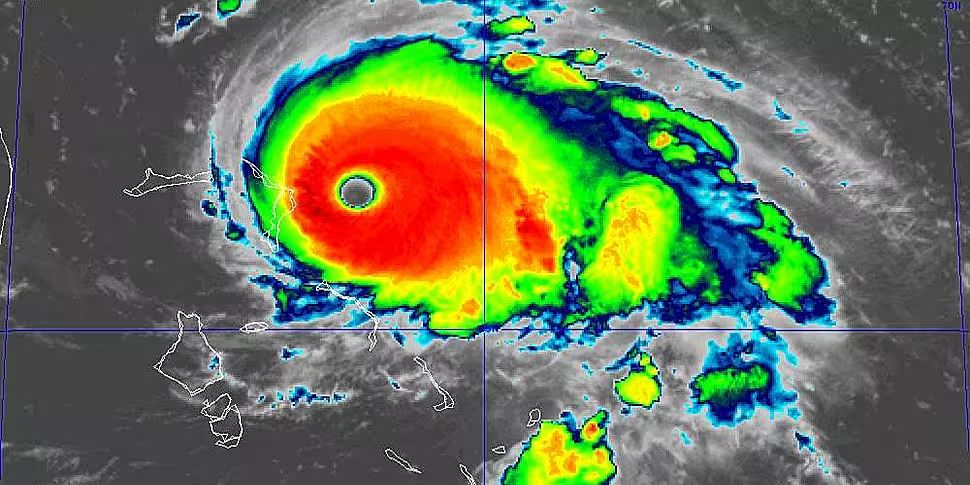Hurricane Dorian has been upgraded to a category 5 storm as it approaches the northwestern Bahamas.
The US National Hurricane Centre (NHC) said the the "catastrophic hurricane" will shortly hit the Abaco Islands with "devastating winds".
Dorian is moving across the Atlantic with sustained winds of up to 260km/h.
NEW: #Dorian is now a category 5 #hurricane with 160 mph sustained winds. The eyewall of this catastrophic hurricane is about to hit the Abaco Islands with devastating winds. Next advisory: https://t.co/tW4KeFW0gB pic.twitter.com/oFspgN0XbT
— National Hurricane Center (@NHC_Atlantic) September 1, 2019
The storm's is forecast to hit Grand Bahama Island later tonight and tomorrow, and move closer to the Florida east coast on Monday and Tuesday.
It's expected to remain a powerful hurricane over the coming days, although forecasters say "some fluctuations in intensity" are likely.
Ahead of an expected "direct hit", residents in the at risk areas of the Bahamas have been urged to get out of harm's way, and evacuations got underway in recent days.
Prime Minister Hubert Minnis said: "I am urging everyone in The Bahamas in the path of Hurricane Dorian to evacuate to safety from this extremely dangerous storm."
I cannot stress enough how important it is for residents in the path of this potentially devastating Category 4 hurricane to take shelter from this storm,” said Prime Minister Minnis. “Property and material possessions can be replaced. A life cannot. Please get out of harm’s way. pic.twitter.com/WoAzKSkBBe
— Office of The Prime Minister The Bahamas (@opmthebahamas) August 31, 2019
In the US, a tropical storm warning is in effect for parts of the Florida coast - with forecasters saying dangerous storm surge and winds are still possible on Tuesday and Wednesday.
Officials have previously said the risk has also increased along the coasts of Georgia, South Carolina and North Carolina.
The NHC adds: "Heavy rains, capable of producing life-threatening flash floods, are possible over coastal sections of the southeast and lower mid-Atlantic regions of the United States through late this week."









